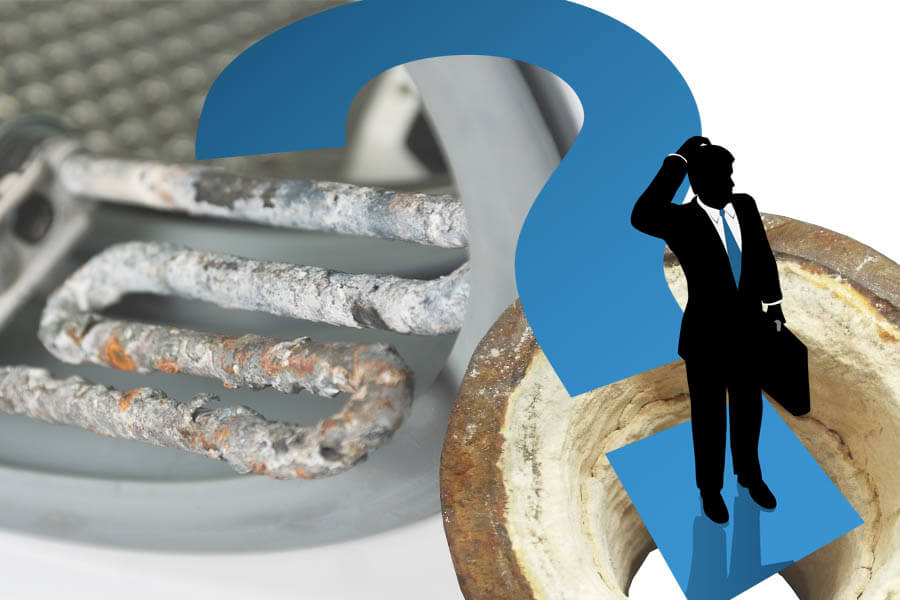Essentially, it comes down to semantics and defining your terms. The salt free scale prevention technologies promoted by many water quality improvement companies are comparable in their objective and theory. When properly designed and applied, they can do a good job of maintaining scale producing minerals in solution, reducing and even preventing scale in wetted areas of the plumbing. If the primary goal is the prevention of boiler scale and related heat transfer efficiency, then magnetic, scale reduction media and other technologies will have varying positive impacts. Unfortunately, when the treated water is exposed to atmosphere, the benefits and performance degrade quickly and substantially. Scale prevention is just one on the benefits of softening, thus this is where there is wiggle room for some to call scale prevention a softener of sorts. Using potassium chloride as the regenerant does not make a salt free softener. Potassium chloride may have advantages over sodium chloride, but it is still a salt with the residual waste water chloride issues.
Don’t be confused, as none of the popular “alternate” systems provides softened water in the traditional sense. Scale prevention systems attempt to bind up the hardness minerals so they remain in the water and do not attach to plumbing surfaces. Water Softeners uses chemical ion exchange to remove the hardness minerals so they are unable to attach. That is basically where the similarity ends. If you are looking only for scale reduction in always wetted areas, then scale prevention systems in that arena may be as good as a softener. There are some true no salt softeners like reverse osmosis, capacitive deionization, nano-filtration, lime softening, chemical treatment and others, but they tend to have significant hurdles that make them unrealistic for most applications.
If you are looking for benefits like significant soap/chemical use reductions, silky skin, longer lasting fabrics, retention of brighter colors in your clothes and lessened spotting issues, then you will need traditional softening. The keys here are your definitions. Does scale reduction lessen spotting? From a technical sense, it can mitigate spotting issues, but not nearly to the extent of softened water. Of course, softened water does not prevent spotting either.
Salt regenerated softeners and no salt conditioners both have their benefits and market. I have found that most people accustomed to soft water will not respond well to a change to a scale prevention technology. The silky feeling of the skin after using soft water will not be found when employing typical no salt systems. This silky feeling, some call it slippery, is one of the primary advantages to soft water. The silky feeling is not residual soap that refused to rinse off, but rather a lack of your skin being dried by hard water. Not convinced? Wash your hands with soap in hard water, rinse and when the slick soap feeling is gone (almost immediately), lick your hand and note that you can still taste soap even though it has been “rinsed off.” Now repeat with soft water and rinse thoroughly. Even though your hands still have that silky feel, the soap taste is gone. The slick feel is your own skin oils, not residual soap.
For those that are not accustomed to soft water, a scale prevention system combined as part of a comprehensive POE filtration solution can be a meaningful improvement. Water quality offerings are often substantially similar, but differences appear when stretching facts into hyperbole. For example, the most common scale prevention medias appears to have a typical residential application lifespan of about 2-5 years, but some are claiming 10 years or more.


Filtration Systems By Contaminants
Ultramax 860 Water Softener
Water Ionizers
Aqua Ionizer Deluxe 9.5 Anti-Oxidant Boost Water Ionizer
Filtration Systems By Contaminants
3 Stage Water softener with Fleck 5600 SXT Control Valve
Filtration Systems By Contaminants
3 Stage Water softener with Fleck 5800 XTR2 Upflow/Downflow Control Valve
Home & Office Water Coolers
Vertex PWC-8000 Premium Ice & Water Dispenser